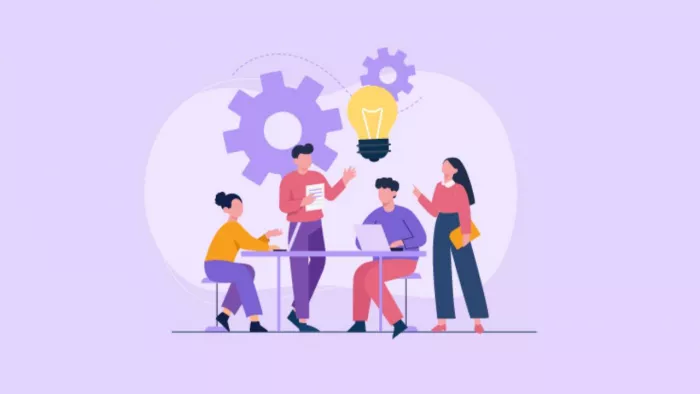
Being able to bounce back is now an important trait for modern enterprises. Organizations should maintain achieving outcomes even when things go wrong, learn to deal with new situations, and keep going without losing steam. But systems that are broken up and make choices take longer, make communication harder, and make it harder to hold people accountable usually weaken resilience. To overcome these challenges, businesses are utilizing project management tools that put all of their major tasks in one place.
Being resilient isn't only about getting through tough times; it's also about keeping things moving, being open to change, and having faith in the procedures that teams employ every day. This power comes from comprehensive collaboration tools that make sure that communication, scheduling, execution, and data all go well. Organizations don't use distinct tools or systems that don't work together anymore. Instead, they use integrated platforms that make resilience a part of their business.
Lark Base: Building stability through structured information
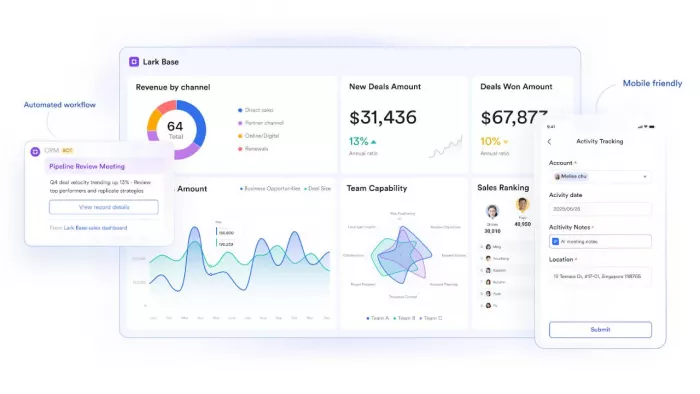
Resilience is all about being able to get information when you need it, and Lark Base gives you the tools to do so. For many businesses, Lark is more than just a location to keep data. With automated workflows, you can easily construct a smart project management console or CRM app, making it easy to keep track of processes, client information, and resources. Base allows teams to make databases that can grow and evolve as their needs change. This eliminates information silos emerging as the business grows.
When projects overlap or people transfer from one position to another, linked records retain the context the same. This makes sure that there is always continuity. Dashboards let management monitor how things are progressing in real time, while filters and tags assist workers get the information they need when things are moving quickly. Base ensures that decisions are always based on correct, organized data that can be retrieved when it is needed most. This makes the system more resilient. It does this by bringing together information and letting people make their own points of view.
Lark Calendar: Preserving rhythm in uncertain times
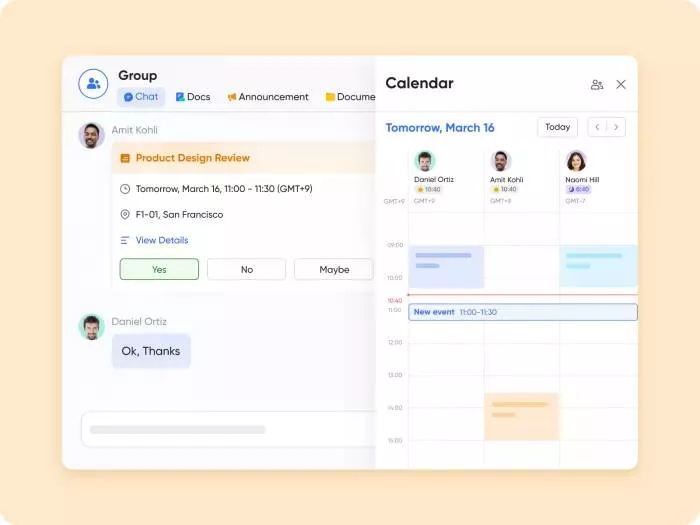
Strong organizations can stick to their plans even when things change at the last minute. This is feasible because Lark Calendar makes scheduling straightforward and easy to understand. When things change quickly, it's easy to get things out of sync. Shared calendars show everyone deadlines, milestones, and events, which stops this from happening. Automatic time-zone conversion makes it possible for teams all around the world to stay in touch. Regular meetings keep crucial evaluations and updates on track, even when things go wrong.
Calendar also helps you be more resilient since it lets you adjust your plans easily when your priorities change. Meeting invitations may include project data or related documents, which helps workers prepare and speeds up the decision-making process. Smart reminders help people follow their promises, and visibility across teams stops people from doing the same task twice. Calendar frames time as a steady, flexible resource, which keeps the operational cadence the same no matter what.
Lark Tasks: Embedding accountability with automated workflows
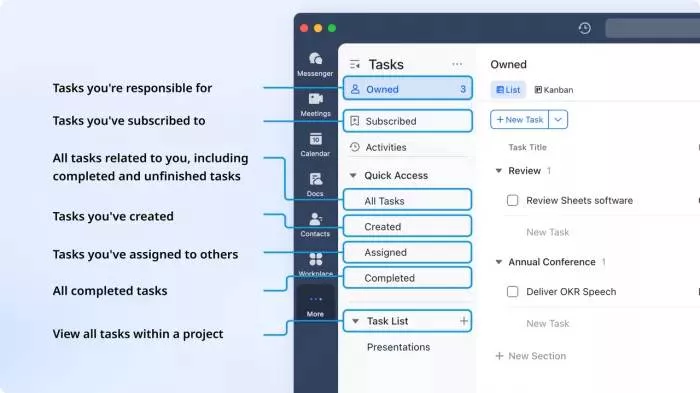
When businesses run into challenges they didn't expect, being accountable is vital for staying strong. Lark Tasks makes it clear who is in charge of what, when things are due, and how far along everyone is with their work, so nothing gets lost. Employees know what they own, and managers can see how projects are doing without having to micromanage them.
Tasks make you more flexible by giving you an automated workflow that sends reminders, assigns tasks, and keeps track of progress on its own. Standardized templates make sure that things like compliance reviews and incident responses are always done the same way. Tasks make sure that resilience is more than just being able to adapt; it also means being able to change while still being accountable and consistent.
Lark Messenger: Maintaining connection through constant change
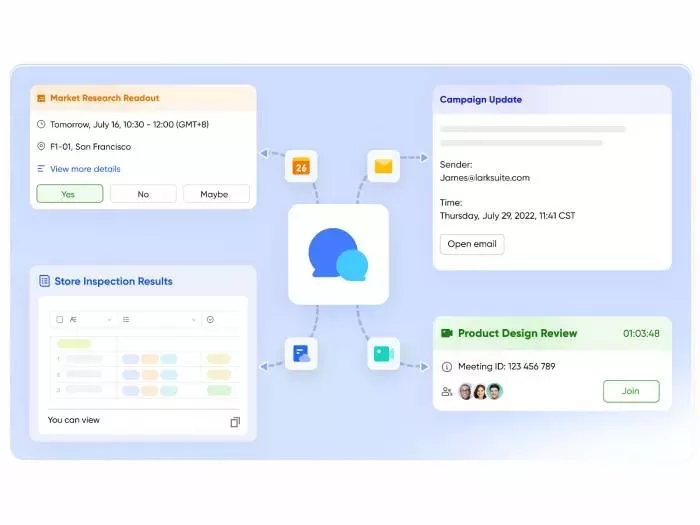
How well a company communicates often decides how quickly it can change. Lark Messenger provides you the power to stay on the same page when things are changing. Messenger connects real-time chats directly to projects and tasks, so you don't have to utilize a lot of different programs that can be hard to understand. Teams can make separate channels for dealing with crises, making plans, or working together every day. This keeps conversations on track and is easy to discover.
Messenger also helps with resilience by preserving the context. Persistent chat histories keep records of why choices were taken. This is especially helpful when employees leave or new people join the team. Files and URLs shared in chats can be used again later. Pinned messages, on the other hand, make sure that people see critical changes in threads that move swiftly. Messenger is a linked, long-lasting tool that helps teams stay on the same page and feel good about themselves, even when circumstances go tough.
Lark Sheets: Data that strengthens adaptability
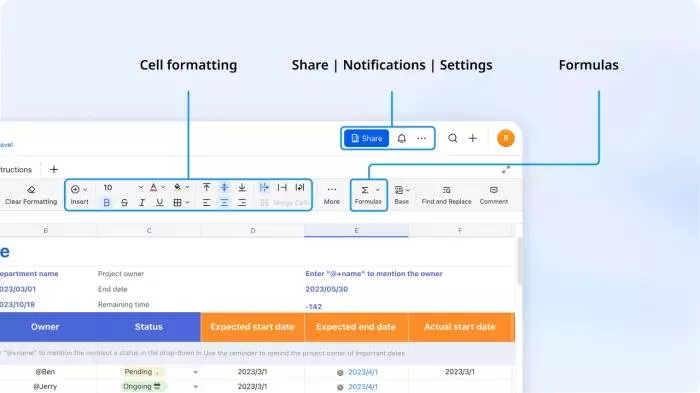
It's crucial for businesses to be able to bounce back from problems by making decisions based on facts, not guesses. Lark Sheets lets teams work together on spreadsheets in real time, ensuring that the data is correct and easy to find. Unlike static files, which quickly get out of date, Sheets makes sure that everyone has access to the same version of the truth.
Teams can keep track of performance indicators, financial data, or resource use collaboratively, which saves down on the time it takes to report by hand. You don't have to run the same reports over and over again with automated updates, and visual dashboards make it easier to analyze data that is hard to understand. It's also easy to add to Sheets, so bigger teams can keep an eye on more indicators without having to worry about fragmentation. Sheets make data easy to understand and reliable, which gives leaders the confidence to adjust their plans rapidly and make sure that resilience is based on facts.
Lark Meetings: Turning alignment into actionable resilience
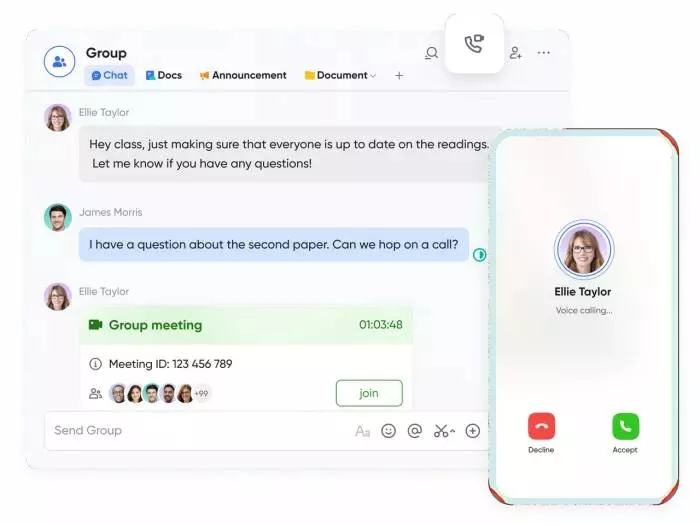
Meetings are a typical place to check for resilience because companies need to quickly agree on things and get things done. Lark Meetings helps with this by making sure that virtual meetings are secure, useful, and focused on getting things done. Teams that aren't all in the same place can work together to come up with plans and solve problems using high-quality video and screen sharing.
Collaborative notes help you remember what happened throughout the session, which makes it less likely that you'll forget to follow up. Action items are linked to tasks or project records, which makes sure that everyone is accountable. Recordings and replays allow folks who weren't there to keep connected and serve as proof for later review. Meetings go from being long, boring events to scheduled times when individuals can work together and stay strong.
Conclusion
Organizations can no longer choose whether or not to be resilient; it is now a key trait for firms that have to deal with constant change. Base organizes information, Calendar keeps things on schedule, Tasks holds people accountable, Messenger keeps people connected, Sheets delivers real-time data, and Meetings transform conversations into outcomes. These elements work together to provide Lark the strong base that businesses need to stay steadfast when things become tough.
Putting all of a company's communication, data, scheduling, and execution on one platform makes it easier for them to be flexible and less likely to be interrupted. When things get tough, things keep operating smoothly because everyone is on the same page and supervisors are more sure they can handle things. In a business world where nothing is certain, full collaboration tools make resilience built-in strength instead of just a reaction.





Comments